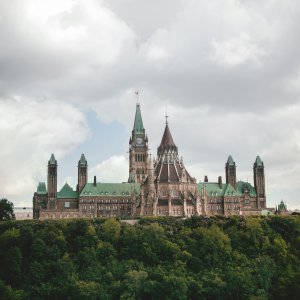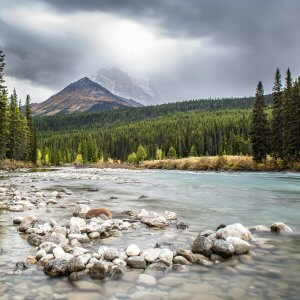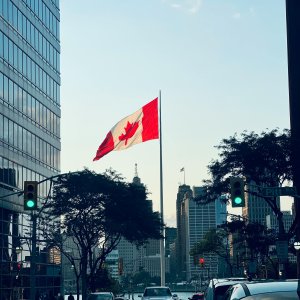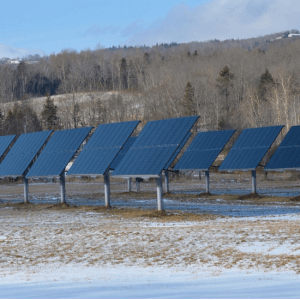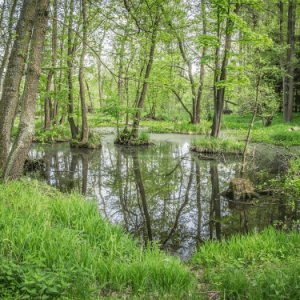Tensions between economic development and climate mitigation policies reflect climate mitigation’s changing status as a national policy priority. Most countries face a policy and cost tension between investments in climate change versus economic development. Canada is no different. On November 7, Prime Minister Carney confirmed that Canada’s economic development priorities involve over $1 trillion over the...
Author: Diane Szoller (Diane Szoller)
Canada: Sea Level Rise
Public Safety Canada reports rising sea levels are impacting property and infrastructure values through damage, making insurance unaffordable or unavailable for high-risk homes.The National Collaborating Centre for Environmental Health (NCCEH) states that the Atlantic coast, the Beaufort Sea coast, and Metro Vancouver are the regions most exposed to rising sea levels in Canada. The Centre...
Canada: The Politics of Climate Change
Oil and gas emissions have risen at record production levels, offsetting any emissions reductions in other sectors like transportation (still at levels from 20 years ago) and buildings. Political forces affecting Canada’s status on greenhouse gas emissions (GHGs) reduction have been influenced heavily recently by: Political leadership – Parliament reconvened May 16, following an April...
Canada: Nuclear Energy Updates
Approximately 15% of Canada’s electricity comes from nuclear power. For several years, Canada has been a leader in nuclear research and technology, exporting reactor systems developed in Canada, as well as a significant proportion of the world’s supply of radioisotopes used in medical diagnosis and cancer therapy. The World Nuclear Association (WNA) reported in January...
Canada: What Recent Climate Polling Tells Us
A recent July poll from Leger & National Post (2025) informed our new Liberal government (April 28) that climate change is a lesser priority challenge, ranking it in eighth place. In recent months, Canadian priorities appear to have changed on climate concerns. A recent July poll from Leger & National Post (2025) let our new...
Canada: 2025 Mid-Year Emissions Report Card
A new 2035 NDC report was submitted to the UNFCCC in February to highlight new actions aimed at achieving Canada’s emissions reduction target of 45-50% below 2005 levels by 2035 (updated in December 2024 from 40-45% below 2005 levels by 2030). Canada’s Parliament was prorogued on January 6, 2025, to hold a federal election. Prorogation...
Roadmaps for the Future: Canadian Climate Experts on What Needs to Be Done
Gordon McBean: Leading Canadian Expert on Arctic Climate, Driving Action for a Resilient Future Professor Gordon McBean is a scientific leader on climate change and disaster risk reduction. He is a noted expert on Arctic climate and weather, climate change, meteorology, and natural hazards. From 1970 to 1988, he was a scientist with Environment Canada....
Northern and rural communities in Canada often have limited social and physical infrastructure and capacity (i.e., limited access to technology and communication systems, health and education services, supplies, and human resources)
More ambitious action is necessary that avoids harming human rights. This entails phasing out the use of fossil fuels and transitioning to 100% renewable energy The Canadian Climate Institute’s narrative on climate change, which has spanned several decades, has overlooked a critical element: the impacts that climate change has had—and will continue to have—on some...
Natural Climate Solutions Could Reduce 10% of Canadian Emissions by 2030
Canada’s 2030 Emissions Reduction Plan includes natural climate solutions to protect, sustainably manage, and restore ecosystems to contribute to climate change mitigation and deliver societal co-benefits. Healthy ecosystems do everything from sequestering carbon to filtering toxic substances from the air, water, and soil, contributing to Canadians’ mental health, and helping reduce the costs of extreme...
Canada’s Vast Expanses of Wilderness and Long Distances Between Cities, Towns, and Rural Communities Create Challenges for Public Transport Systems
Canada’s vast expanses of wilderness and long distances between cities, towns, and rural communities create challenges for public transport systems. Statistics Canada reported 16.5 million commuters in May 2024, 4 out of 5 using a car, truck, or van. Made in Canada, a grassroots agency notes that during early COVID-19 in February 2020, Canada had...




